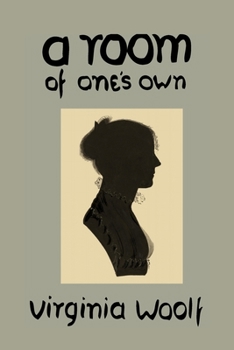A Room of One's Own
Select Format
Select Condition 
Book Overview
2025 Reprint of the 1929 Edition. In A Room of One's Own, Virginia Woolf imagines that Shakespeare had a sister-a sister equal to Shakespeare in talent, and equal in genius, but whose legacy is radically different. This imaginary woman never writes a word and dies by her own hand, her genius unexpressed. If only she had found the means to create, argues Woolf, she would have reached the same heights as her immortal sibling.
In this classic essay, Woolf takes on the establishment, using her gift of language to dissect the world around her and give voice to those who are without. Her message is a simple one: women must have a steady income and a room of their own in order to have the freedom to create.
Surprisingly, this long essay about society and art and sexism is one of Woolf's most accessible works. Woolf, a major modernist writer and critic, takes us on an erudite yet conversational--and completely entertaining--walk around the history of women in writing, smoothly comparing the architecture of sentences by the likes of William Shakespeare and Jane Austen, all the while lampooning the chauvinistic state of university education in the England of her day. When she concluded that to achieve their full greatness as writers women will need a solid income and a privacy, Woolf pretty much invented modern feminist criticism.
About the AuthorVIRGINIA WOOLF (1882-1941) was one of the major literary figures of the twentieth century. An admired literary critic, she authored many essays, letters, journals, and short stories in addition to her groundbreaking novels, including Mrs. Dalloway, To The Lighthouse, and Orlando.






